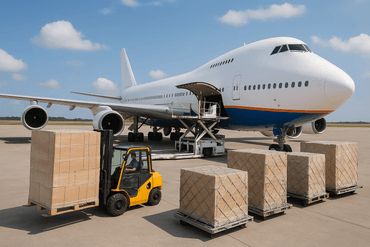
What Are Canada’s Main Exports and Imports?



As one of the world’s prosperous nations, Canada enjoys excellent trade relations with the United States, South and Central American Countries and Europe who make the bulk of the country’s bilateral trade partner.
Historically, Canada has heavily relied on trade and commerce to grow its economy exporting large quantities of raw materials including furs from animals, fish, timber and grain. But with time they have moved away from reliance on raw material exports to exporting more manufactured and processed goods which bring in even better revenues because they fetch better prices.
Canada’s main exports
Cars
Canada is among the top four largest exporters of vehicles in the world coming in after Germany, Japan and the United States. Being the world’s ninth largest producer of automobiles in the world puts the country at a huge advantage of reaching multiple markets with their vehicle exports. Canada’s automotive industry features many assembly plants where foreign automakers get their vehicles assembled with their biggest clients being Japanese and American brands.
The country also has hundreds of companies and plants manufacturing automotive systems and parts which creates a conducive environment to grow their car manufacture and assembly industries. In fact, because of this automotive assembly and manufacture are the industrial backbone of the country’s economy. It accounts for 23% of the trade Canada has with other countries.
Canada produces every type of automobile from trucks and passenger vehicles to buses and the accompanying systems and parts needed.
Minerals
Canada exports three types of minerals: precious metals like gold, platinum, diamonds and silver, energy minerals like coal and uranium, base metals like copper, nickel, zinc, iron and lead, and industrial minerals including gypsum, limestone, potash and rock salt.
Canada sits on nearly 10 million kilometers of land mass with six distinct geological regions. The Canadian continental shelf is the country’s source of oil and natural gas. The metals are found mainly in the central and western parts of the country which makes up the Canadian shield. This area has potential for discovery of more mineral deposits. The Appalachian region has deposits of Potash, gypsum, asbestos lead, zinc and salt deposits. Some more gypsum as well as limestone, and rock salt have been found in the Innutian Orogen which lies in the Arctic Archipelago. The Canadian Cordillera produces more precious and base metals that country exports and the interior platform adds to their reserves of potash, natural gas, oil and coal.
With all these deposits Canada is the leading exporter and overall producer of potash, biggest exporter of uranium, second largest asbestos and sulphur exporter and third largest exporter of platinum-group metals. They are the fourth biggest producer of aluminium and fifth biggest exporter of gold, silver, copper and lead. As much as 90% of the country’s mineral products are exported.
Crude Oil
Canada is the main foreign supplier of crude oil to the United States with their crude oil exports accounting for 48% of the U.S. crude oil imports in 2018. The country exported 96% of their crude oil to their neighbor amounting to 3.5 million barrels of oil per day.
Canadian Alberta oil sands have the country’s oil reserves with more reserves off their Atlantic coast. The nation is the third largest producer and exporter of crude oil in the world coming in after Venezuela and Saudi Arabia. They have invested in exploration, production and processing the oil for both domestic and international consumption meaning.
Wood
Soft timber accounts for 20% of the country’s total exports. Their forest products produce revenue worth $17 billion specifically from newsprint, northern bleached softwood kraft pulp, and softwood lumber. Canada dominates the market share for these products being the largest producer and exporter of all three. Even with the decline of newspaper sales in North America which has resulted in less demand for newsprint the country still enjoys a demand from other emerging markets in Asia and the rest of the world.
The United States, China and Japan are the primary importers of Canadian lumber and is used in the construction industries of these countries.
Imports
Cars and automobile parts
Canada is the second largest automobile market in North America and their imports associated with the automotive sector increased by 1% in 2018. They imported cars worth $74 billion where passenger cars were the most imported. The country imported trucks, buses and other vehicles used in transportation as well since the country is upgrading their road transport system.
The primary exporter to Canada was the United States who provided the country with over 65% of their automotive imports. Parts, components and systems for automobiles cost Canada $20 billion in 2018. It is easier for Canada to import from the United States as both countries have very harmonized road safety regulations for their vehicles.
Computer machinery
Computers are a key component in driving machinery in Canada. They import lots of computer machinery because the country is very automated and computerized in key sectors that drive the economy. Machinery is key to technology and as a first world country Canada relies on technology heavily.
The computers are also used widely by the Canadian population to run businesses. The country experienced 8.7 increase in computer ma
chinery and optical readers imports in 2018.
Related Articles


